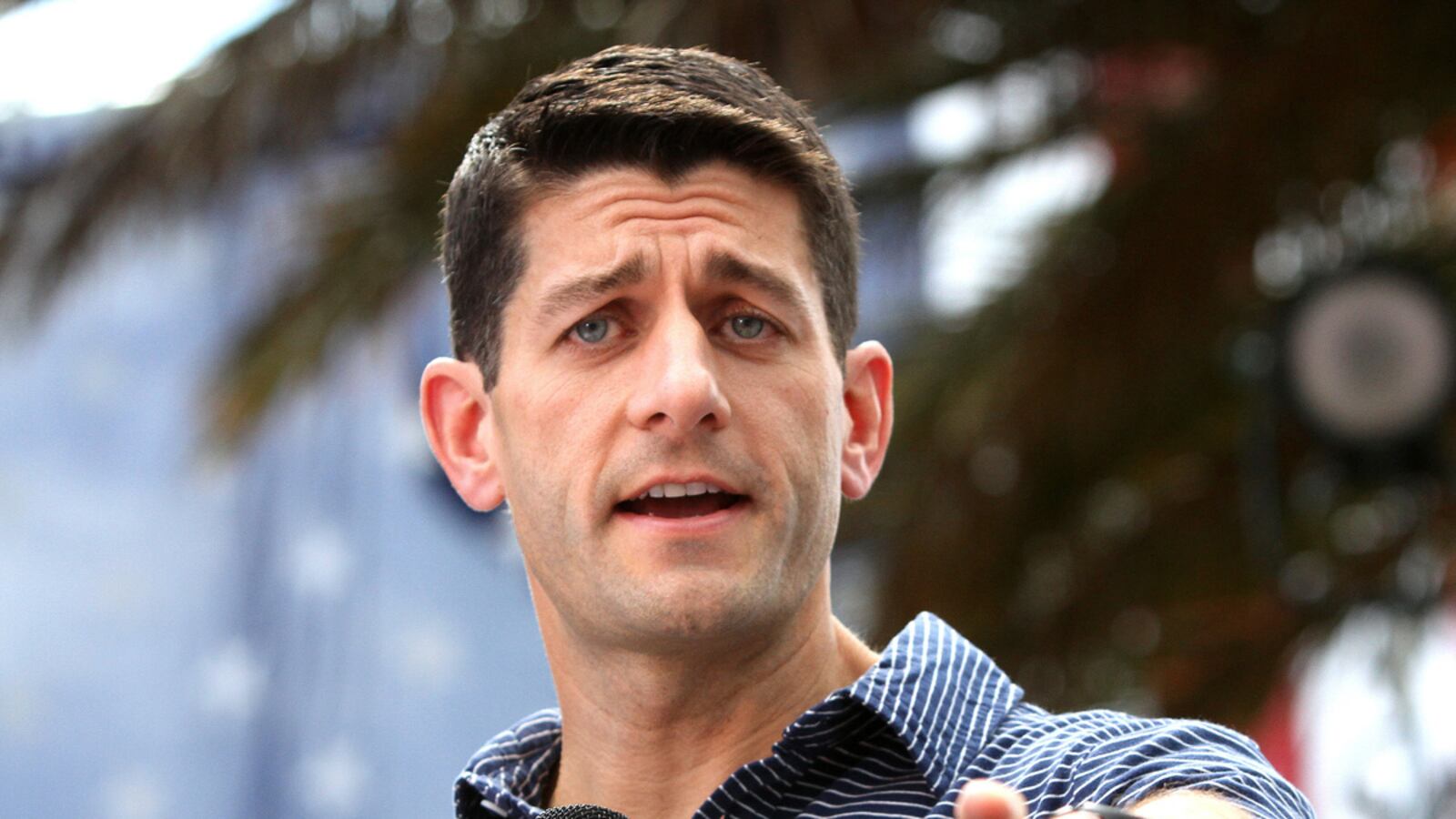My brother-in-law Vincent sits with me as I finish this piece. He is intellectually disabled and has been repeatedly hospitalized, most recently last week. As someone who relies on Medicare, he will be deeply affected by the outcome of this election.

Yet Vincent, like millions of others, doesn’t only rely on Medicare; he relies on Medicaid, too. While Democrats have been hammering Mitt Romney and Paul Ryan on Medicare over the past week, lambasting their proposal to convert the program to vouchers, far less attention has been paid to the Republican duo’s plans for Medicaid—even though, for many people, the fates of the two programs are closely linked.
Medicaid has always been Medicare’s essential backstop. About one third of Medicare spending finances services for “dual-eligibles”—nine million people who, like Vincent, are eligible for both programs, and who often have complex needs.
Dual-eligibles are the sickest, poorest, and most vulnerable segment of the Medicare population. Medicaid spends billions on nursing home and long-term care for the dual-eligible population. It pays for many other things, too. It helps dual-eligibles by covering Medicare Part B premiums, copayments, and deductibles that they couldn’t otherwise afford. It also covers essential services such as dental care that Medicare doesn’t cover, but that elderly and disabled people need.
Unfortunately, as states trim spending in a tough economy, many of these people, along with other Medicaid recipients, have already experienced cuts in dental and vision care, prescription drug coverage, and even meals on wheels and hospice care. Other states have frozen already-low Medicaid provider payments or have taken other steps that limit access to services.
So what do Romney and Ryan have in store for dual-eligibles? Given the Republican ticket’s vagueness on so many critical matters, it’s hard to know. But what we do know is cause for concern. The GOP ticket would convert Medicaid from its traditional state-federal partnership to a block grant, whereby the federal government would provide a fixed payment to each state. These payments are slated to grow more slowly over time than the true costs of care. When you combine this with their proposed repeal of Obamacare, it amounts to a punishing 34 percent reduction in federal support for Medicaid over the next decade.
Because states directly administer Medicaid, no one can say precisely what would happen as a result of Romney and Ryan’s proposal—how many fewer people or services would be covered, or how much less hospitals and doctors would be paid. That ambiguity is awfully convenient for the Republicans: block grants provide politicians with plausible deniability that distances them from painful on-the-ground cuts induced by federal policies. Yet such cuts will unavoidably affect the impoverished and the disabled.
Both Democrats and Republicans must think harder about how to provide better and more economical care to dual-eligibles. Some experts have proposed that the federal government assume full responsibility for financing dual-eligibles’ healthcare. This is a smart idea: It would relieve states of large financial burdens, while also relieving them of responsibilities for interventions they often do not operate very well.
Last week, when Ryan went to a Florida retirement development to defend his plans for Medicare, it probably wasn’t a coincidence that he chose a pretty upscale location. “Residents living in The Villages have an average income that is almost double the U.S. average,” brags the development’s website. (It also touts the area’s 29 executive golf courses.) Of course, not everyone who lives in The Villages is rich. Still, watching Ryan speak there, the entire matter of Medicaid seemed very far away.
The dual-eligibles include millions of low-income seniors, elderly nursing home patients, and homebound disabled people. Many were once ordinary middle-class people. They just lost life’s lottery by losing a job, outliving their savings, getting sick, or tripping down the stairs. I hope these men and women—people who rely on both Medicare and Medicaid—won’t be forgotten in this year’s election.





